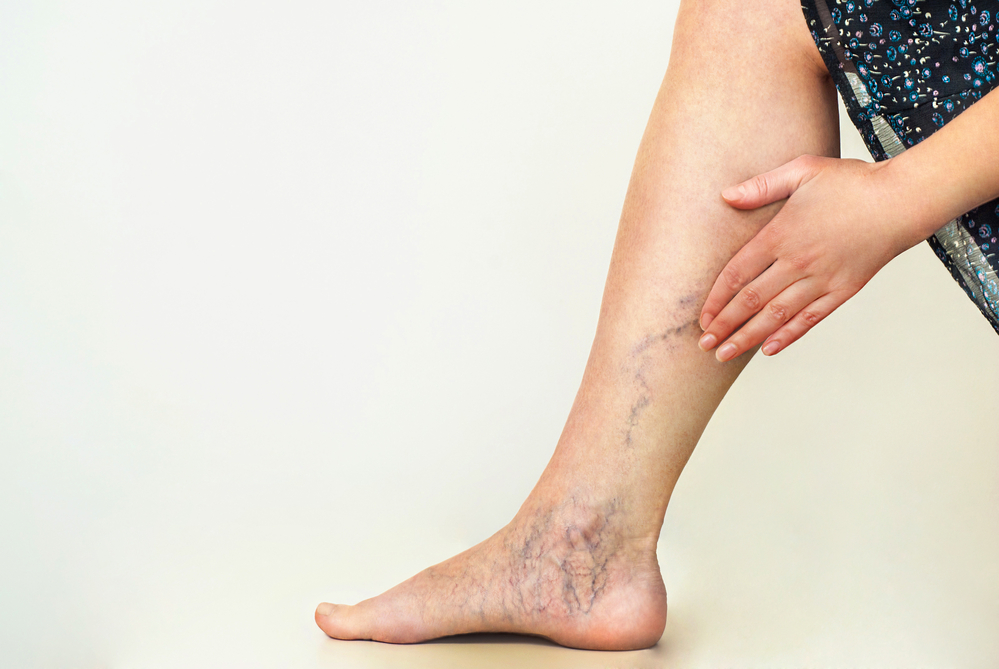Varicose veins are bulging, twisted veins that often appear on the legs but can appear elsewhere, including the lower abdomen. At Worcester Dermatology in Worcester, MA, we know these disordered veins present much more than a cosmetic concern. They can cause discomfort, pain, and lead to more serious medical conditions if left untreated. Today, we’re looking at two of the latest advancements in the treatment of this condition. Let’s get started.
What Are the Latest Advancements in Varicose Veins Treatment?
In the past, the only way to treat varicose veins was with surgery. Today, there are safe, effective ways to treat a varicose vein without the downsides of surgery. Two of the latest advancements in treating disordered veins are sclerotherapy and laser vein treatment.
What Happens During Sclerotherapy?
During sclerotherapy, a tiny cannula is used to administer a sclerosant into the varicose vein. Generally, we administer Asclera or hypertonic saline to irritate the disordered vein until it collapses in on itself. Once the varicose vein collapses, blood cannot flow through it, and it will suffocate to death. Once the vein dies, your body will slowly absorb it, and it will disappear forever.
Am I a Good Candidate for Sclerotherapy?
Due to the minimally invasive nature of sclerotherapy, most people qualify. Generally, people who receive this treatment are between the ages of 30 and 60. However, if you fall outside of this age range and you have realistic expectations about the results of treatment, you should qualify.
You should note, though, that there are contraindications. It is important that you walk around after treatment, so you will not qualify if you are not able to do so. Furthermore, we can’t treat anyone with serious blood clotting issues.
What Happens During Laser Vein Treatment?
During laser vein treatment, laser light is used to heat the disordered veins. Over the course of roughly 20 minutes, the veins absorb enough heat that they collapse in on themselves. Generally, there is no need for anesthesia, but we are happy to numb the treatment areas if you are sensitive to heat.
Am I a Good Candidate for Laser Vein Treatment?
To determine if laser vein treatment is right for you, an initial consultation is required. To qualify for this treatment, you must have realistic expectations about the results of treatment. You should understand that one to two treatments are usually required to treat spider veins, and two to four treatment sessions are required for the treatment of varicose veins.
It is also essential that you are not pregnant, and you do not have a tattoo in the treatment area. You should also be in good overall health to be considered a good candidate for this treatment. You will not qualify if you have blood clotting problems, skin cancer, diabetes, or a history of seizures. You must also commit to following all preparation and aftercare guidelines.
How Do I Need To Prepare for Laser Vein Treatment?
To prepare for laser vein treatment, you must avoid sun exposure for seven days before your treatment. You also should avoid drinking alcohol and consuming tobacco products. Furthermore, you should not take blood thinners for a few days before your treatment.
Additionally, you should ensure that you are hydrated when you come in for your appointment. On the day of your appointment, you should not apply any lotions, creams, or moisturizers to your treatment areas, and you should wear loose, comfortable clothing.
What Aftercare Guidelines Will I Need To Follow?
After your laser vein therapy, you must avoid strenuous physical activity for 72 hours. Additionally, you should avoid sun exposure for seven days post-treatment. When you go outside, you must wear highly protective sunscreen. Moreover, you need to refrain from scratching at your treatment areas.
Another important aftercare guideline to follow is to keep your legs elevated as much as possible during the first 48 hours post-treatment. Furthermore, you should wear prescription-strength compression stockings for three days post-treatment.
What Is the Importance of Treating Varicose Veins?
Even if your varicose veins aren’t causing you such problems as itchiness, pain, swelling, or other forms of discomfort, it is important to treat them for your health. There are several serious medical complications that can occur, including superficial thrombophlebitis, deep vein thrombosis, and pulmonary embolism.
Superficial thrombophlebitis, sometimes referred to as superficial venous thrombosis, is a painful condition characterized by the formation of blood clots inside the disordered veins. Deep vein thrombosis, or DVT, occurs when a blood clot develops in a vein that is deep within your body rather than a superficial vein close to the surface of your skin. Pulmonary embolism occurs when a blood clot travels through your bloodstream and lodges in your lung.
Say Goodbye to Disordered Veins for Good
In recent years, there have been many advancements in varicose vein treatment methods. Two of the most incredible are laser vein treatment and sclerotherapy. These minimally invasive treatments can treat your disordered veins in just one or two sessions, and the results of treatment are permanent. To determine which method is right for you, schedule an appointment with us at Worcester Dermatology in Worcester, MA.

